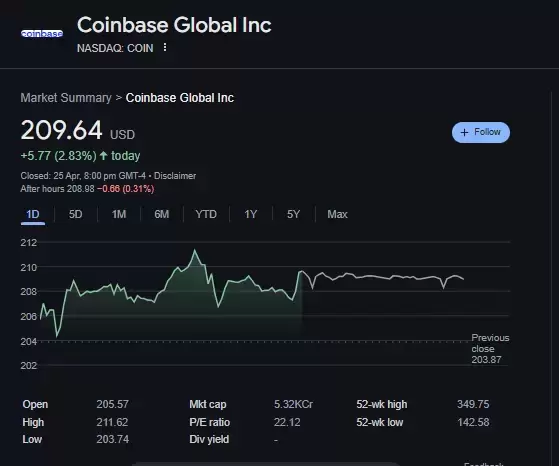 |
|
 |
|
 |
|
 |
|
 |
|
 |
|
 |
|
 |
|
 |
|
 |
|
 |
|
 |
|
 |
|
 |
|
 |
|
Goran Skosplesは、オハイオウェスリアン大学の経済学の准教授です。

Tariffs have recently been the topic of both significant policy recommendations and casual conversations.
関税は最近、重要な政策勧告とカジュアルな会話の両方のトピックとなっています。
One of the main stated reasons for tariff increases has been that we are running persistent trade deficits with other countries who are taking advantage of our country. An increase in tariffs would, as it is claimed, improve our trade balance by decreasing our imports.
関税の増加の主な理由の1つは、私たちが私たちの国を利用している他の国と持続的な貿易赤字を実行していることです。関税の増加は、主張されているように、輸入を減らすことで貿易収支を改善するでしょう。
It is clear that the United States is running a trade deficit vis-à-vis the rest of the world. It currently sits at about $900 billion, or about 3% of GDP.
米国が世界の他の地域に対して貿易赤字を運営していることは明らかです。現在、約9,000億ドル、つまりGDPの約3%である。
This means that we are consuming more goods and services (actually goods) than we produce. It is difficult to understand how other countries are taking advantage of the United States, as it has been claimed recently, if we can have higher consumption than we would be able to have if we did not have a trade deficit. In other words, a trade deficit allows us to live “beyond our means.”
これは、私たちが生産するよりも多くの商品やサービス(実際には商品)を消費していることを意味します。最近主張されているように、他の国がどのように米国を利用しているかを理解することは困難です。言い換えれば、貿易赤字は私たちが「私たちの手段を超えて」生きることを可能にします。
Perhaps other countries are lending us the means and in the future, they will come to collect and then we will have to face the harsh truth of having lived beyond our means.
おそらく他の国々が私たちに手段を貸してくれており、将来、彼らは収集するようになり、それから私たちは私たちの手段を超えて生きてきたという厳しい真実に直面しなければならないでしょう。
This line of reasoning misses the other side of the coin. In the language of economics, the flow of goods and services (trade) is referred to as the current account. The other side of the coin is the flow of funds or the capital account.
この推論の行は、コインの反対側を逃しています。経済学の言語では、商品とサービスの流れ(貿易)は現在のアカウントと呼ばれます。コインの反対側は、資金または資本口座の流れです。
It is not that other countries are lending us the means which we then use to buy goods and services from these countries, but it is rather that we are selling them something on the other side of the coin.
他の国が私たちにこれらの国から商品やサービスを購入するために使用する手段を私たちに貸しているわけではありませんが、むしろ、コインの反対側で何かを販売しているということです。
What we are selling are different assets such as stocks, bonds, real estate, etc. When we purchase more goods and services from other countries and send our dollars to them, they use those same dollars to purchase our assets.
私たちが販売しているのは、株式、債券、不動産などのさまざまな資産です。他の国からより多くの商品やサービスを購入してドルを送信すると、同じドルを使用して資産を購入します。
As it turns out, our deficit in good and services, or the current account, equals the sale of our assets, or the capital account. This is what is known as, albeit in a simplified version, the balance of payments. When we experience a larger trade deficit it is financed by a larger sale of assets.
結局のところ、当社の財とサービスの赤字、または当座預金口座は、資産または資本口座の販売に等しい。これは、単純化されたバージョンでは、支払いの残高として知られているものです。私たちがより大きな貿易赤字を経験するとき、それは資産のより大きな販売によって資金提供されます。
A common misunderstanding is to draw a parallel between the entire economy and an individual.
一般的な誤解は、経済全体と個人の間に類似点を引き出すことです。
If an individual enjoys larger consumption (equivalent to a trade deficit) and finances it by selling assets, that cannot be sustained as assets are limited and are eventually depleted. An individual cannot sensibly live “beyond her means” in perpetuity. But imagine that this individual is a skilled artisan creating world-renowned wicker baskets.
個人がより大きな消費(貿易赤字に相当)を享受し、資産を販売することで資金を供給している場合、資産が限られており、最終的に枯渇するにつれて維持することはできません。個人は、「彼女の手段を超えて」永久に賢明に生きることはできません。しかし、この個人は、世界的に有名な邪悪なバスケットを作成する熟練した職人であると想像してください。
Every basket she weaves is technically her asset and she can sell it. In this situation, one would not consider her financing consumption by selling her baskets living “beyond her means.”
彼女が織るすべてのバスケットは、技術的には彼女の資産であり、彼女はそれを売ることができます。この状況では、「彼女の手段を超えて」生きているバスケットを販売することで、彼女の資金調達消費を考慮しません。
She would only face a problem if she stopped weaving baskets and then she would have to reduce her consumption of goods and services. She would not be able to finance her consumption if she stopped creating new assets.
彼女はバスケットの織りを止めた場合にのみ問題に直面し、その後、商品やサービスの消費を減らす必要があります。彼女が新しい資産の作成を停止した場合、彼女は自分の消費に資金を提供することができません。
Is a persistent trade deficit really bad?
永続的な貿易赤字は本当に悪いですか?
If we zoom out to the entire economy, if our stock of assets is fixed and we do not create new assets, we would not be able to keep selling our assets forever to finance consuming more goods and services than we produce, or, in other words, we would not be able to run a trade deficit.
経済全体にズームアウトした場合、資産の在庫が固定されていて新しい資産を作成しない場合、生産するよりも多くの商品やサービスを消費するために資金を販売し続けることはできません。
However, we do create new assets all the time. One thing the United States is good at is innovation and creating businesses. What we miss by focusing on the trade of goods and services, where we are running deficit, is the sale of something we are very skilled at producing and selling, and that is our innovation and business creation, where we are running an equivalent surplus.
ただし、常に新しい資産を作成しています。米国が得意なことの1つは、イノベーションとビジネスの創設です。私たちが赤字を抱えている商品やサービスの取引に焦点を当てることで私たちが見逃しているのは、私たちが生産と販売に非常に熟練しているものの販売であり、それが私たちのイノベーションとビジネス創造であり、私たちが同等の余剰を運営しています。
In his "The Wealth of Nations," Adam Smith set out to find why some countries are wealthy and some countries are not. One of his main conclusions was that when a country specializes in something it is good at and trades with others, it does better than when it tries to do everything itself.
彼の「富の国家」で、アダム・スミスは、なぜ一部の国が裕福であり、一部の国がそうでない理由を見つけるために出発しました。彼の主な結論の1つは、国が何かを専門とするとき、それが得意で他の人と取引するとき、それ自体をやろうとするときよりも良いことです。
Since we are very good at innovation and business creation, specializing in this makes us better off than would be otherwise. The fact that we are able to run persistent trade deficits is not a sign of weakness, but rather a sign that we are good at creating assets that are attractive to other countries.
私たちはイノベーションとビジネスの創造が非常に得意であるため、これに特化することで、そうでなければ私たちを良くします。永続的な貿易赤字を実行できるという事実は、弱点の兆候ではなく、他の国にとって魅力的な資産を作成するのが得意な兆候です。
America Inc. is something that we specialize in and is highly desirable around the world.
America Inc.は、私たちが専門とするものであり、世界中で非常に望ましいものです。
Increasing tariffs may be an attempt to “solve” the problem of persistent trade deficits. That is, if you believe that our trade deficit is a problem that needs solving.
関税の増加は、持続的な貿易赤字の問題を「解決」する試みかもしれません。つまり、私たちの貿易赤字が解決を必要とする問題であるとあなたが信じるなら。
免責事項:info@kdj.com
提供される情報は取引に関するアドバイスではありません。 kdj.com は、この記事で提供される情報に基づいて行われた投資に対して一切の責任を負いません。暗号通貨は変動性が高いため、十分な調査を行った上で慎重に投資することを強くお勧めします。
このウェブサイトで使用されているコンテンツが著作権を侵害していると思われる場合は、直ちに当社 (info@kdj.com) までご連絡ください。速やかに削除させていただきます。



























































